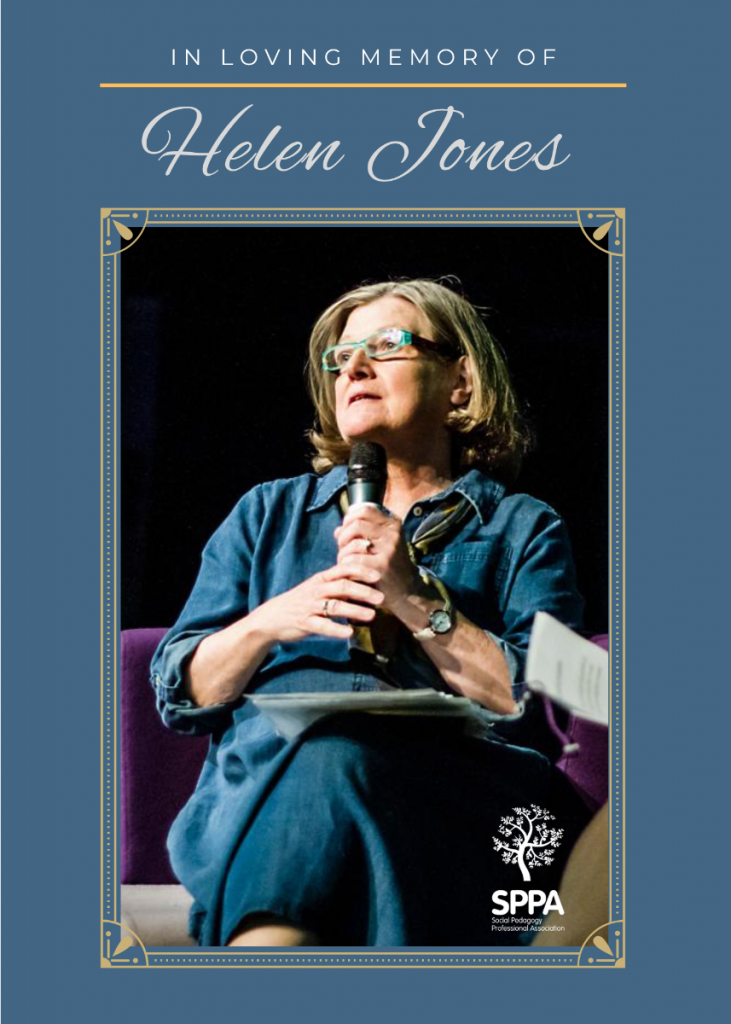Join our new course to improve constructive communication that leads to greater connection
The Elephant in the Room

We’ve all been there. Yet another elephant is on the loose and has taken centre stage in the room. Yet again, everybody is trying hard to pretend that it isn’t there. After all, elephants are big and heavy, so pushing it back out of the room isn’t really an option. But what if we could find the courage to address the elephant in the room constructively? Better yet, what if we could have meaningful conversations about difficult issues in ways that improve the relationships between us?
These are the questions at the heart of our new experiential online learning programme, tailored to the particular professional context of social care. We know how challenging it can be to have to deliver difficult messages to the people you support. We also know how beneficial it can be to create the conditions for meaningful dialogue with the people you support, so that you can have a courageous conversation.
Social work requires practitioners to work in challenging situations and sometimes hostile environments. Lord Laming (2003) called for ‘respectful uncertainty’ whereby social workers are able to capture the delicate balance of trust and doubt. Likewise, Cooper (2018) suggests these are often the instances where professionals can lose their heads with anxiety and become very reactive. And Dolezal & Gibson (2022) argue that social workers need to be attuned to the corrosive impact of shame and shame-avoidance, which plays a particularly important role when we have to talk about challenging things. Being self-reflective in how they communicate within these tension fields is therefore a critical skill. Through this learning programme we want to enable you to develop your skillset and experience the benefits of having courageous conversations within your organisation and with the people you support.
Learning Takes Courage

Learning requires a leap of faith into the unknown, the courage to try things out, and the support of people who share the learning journey. We have therefore designed this learning programme to draw on the power of peer learning, combined with insights from communication theory, conflict resolution methods, space for self-reflection and action planning.
Over the course of 6 3hr sessions, we will build a peer learning community in which participants increasingly take on greater responsibility for supporting each other in the ongoing process of applying your learning to your respective practice context. Why is this a powerful way to achieve practice improvement? Because converting learning experiences into meaningful behaviour change relies on three factors:
- CAPABILITY: Acquiring new skills and insights into relevant communication theory and conflict resolution methods
- MOTIVATION: Being eager and feeling confident to create positive change, finding your inner courage to address conflicts pro-actively and constructively
- OPPORTUNITY: Finding ways to apply learning in practice, creating the space for self-reflection within the peer learning community, and identifying further opportunities for leading courageous conversations
We expect participants to commit to taking action in between each session, so that you can practice having more courageous conversations both in your professional and personal life.
Session Content
We explore courageous conversations as the interplay between you and another person, framed by the environment in which this interplay takes place. Importantly, we believe that courageous conversations should be an empowering encounter for everyone involved.
Sessions 1 & 2: Find your courage, face your fears
In the first two sessions, we start off your learning journey with you. By introducing you to a range of communication theories, including non-violent communication, we help you better understand the dynamics at play in communication, how you usually communicate and the implications this might have for leading courageous conversations.
Sessions 3 & 4: Connect with empathy
In the third and fourth session, we shift the focus towards better understanding the other person’s role and how you can help someone else be open to what you wish to convey, provide relational certainty, and empathically listen to truly understand their point of view.
Sessions 5 & 6: Create the conditions for learning together
In the last two sessions, we explore how you can create an environment that enables people to have courageous conversations, for instance through imaginative ways to provide feedback, by framing courageous conversations as learning together and integrating critical reflection processes into existing structures such as supervision, team meetings, review meetings, and appraisals.
Each 3-hr session is designed to connect capability, motivation and opportunity by giving you time to explore an area of your practice that you’re determined to change, plan a micro-intervention – a small thing you’ll do to communicate more constructively – and commit to your peers that you’ll come back the following session having tried this out.
Who We Are
The course is designed and delivered by Ali Gardner, a registered social worker and director of Head, Hearts, Hands in Practice, and Gabriel Eichsteller, a social pedagogue and co-director with ThemPra Social Pedagogy CIC. Our backgrounds are in social work practice, policy, education, training, publishing and international projects in the field of social pedagogy, so we’ve worked with a broad range of people in environments where authentic dialogue and trusting relationships are critical. Ali has harnessed these experiences to create the new Research in Practice for Adults briefing paper on Courageous Conversations. This learning programme builds on this and our other work around relationship-centred practice to help you transfer these insights into your practice.
Course Dates
We’re currently fully booked and working on identifying new course dates. Please check back here soon or leave your contact details below.
Costs
The cost per participant is £300 (ex VAT). We offer a 5% discount per place to organisations purchasing 5+ places and a 10% discount per place for 10+ places. Payment can be made either by bank transfer or invoice and must be received at least 14 days prior to the start date.
Register Your Place
To enquire about upcoming courses, please leave your details in the below form:
Professional Standards
Upon completing the learning programme, we will provide you with a certificate over 21 hours of CPD. You can use your applied learning from this course as part of your CPD requirements, including towards the following professional standards:
Post-qualifying standards: Knowledge and Skills Statements:
Person-centred practice | Effective assessment and outcome based support planning | Direct work with individuals and families | Supervision, critical analysis and reflection | Professional ethics and leadership | Values and ethics | Influencing and governing practice excellence within the organisation and community | Developing confident and capable social workers | Assuring good social work practice and development | Relationship-based practice supervision | Effective use of power and authority as a practice supervisor
Care Quality Commission – Key lines of enquiry:
Effective | Caring | Responsive | Well-led
Professional Capabilities Framework for Social Work in England:
Professionalism | Values and ethics | Diversity and equality | Rights, justice and economic well-being | Critical reflection and analysis | Intervention and skills | Professional leadership
Royal College of Occupational Therapists – Professional Standards:
Understanding relationship | Service users | Screen needs | Develop intervention | Evaluate impact | Collaborative | Communication | Support development
Further Questions?
Please get in touch with us via email if you would like to know more about this course or any of our other learning activities.





